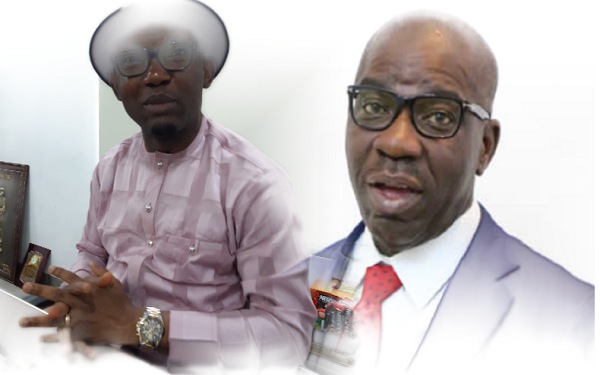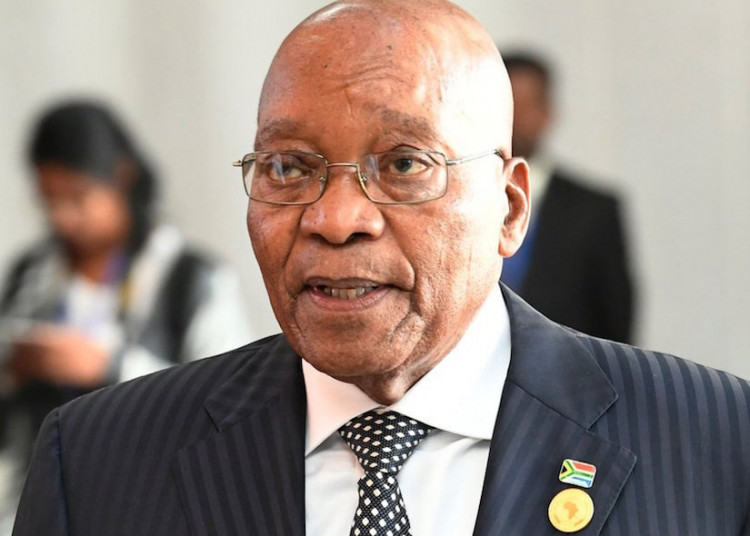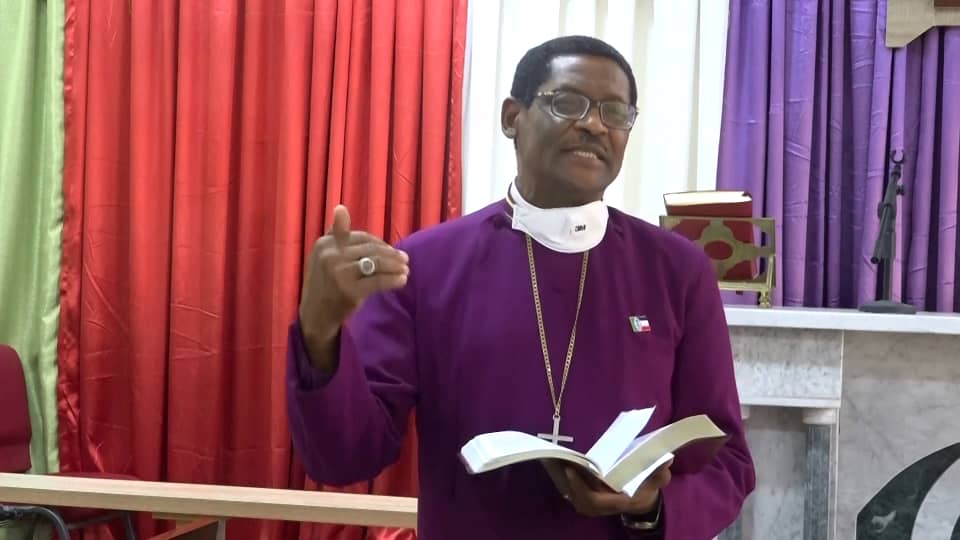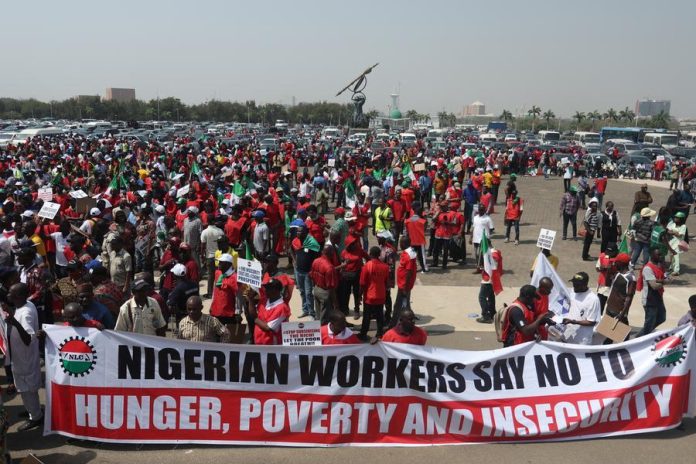The Primate of all Nigeria, Anglican Communion, Most Rev Nicholas Okoh speaks with the journalists in the Episcopal House, Abuja on the controversy on tithing and the cost of the Boko Haram insurgency to the church.
Recently, the issue of tithing came up with a lot of controversies. What would be the stand of the Anglican Church on tithing?
Tithing is a very ancient tradition, Abraham paid tithe to Melchizedek and people have become transfixed to that idea till today, but in the New Testament, giving modalities have other options. One, it says, set aside something every week which you think would be handsome for the glory of God and give that. Whether that is 10 per cent or whatever per cent, I don’t know, but the instruction is, set aside something every week. Then, there is the gift required to give by all; the first concept is that your life is a living sacrifice. A sacrifice is something you offer and withdraw your hand, that means the Christian offers his life totally and the totality of his training, his money and everything he has belonged to God. Therefore, the question of saying, “God take 10 per cent, I would keep 90 per cent” does not arise. Let me give an example: If you are a tither and you give 10 per cent to the Church, and after giving this percentage, somebody is very sick, and you still have your 90 per cent, will you close your eyes to the person’s need? You see, that is one of the weaknesses of tithing if you follow it mechanically. Then furthermore, in John chapter 6, Jesus asked people who had food to bring it, but only one young boy who had a lunch pack–two pieces of fish and five barley loaves, offered his. The mother gave him to eat as he was going about with Jesus so he would not be hungry. When Jesus asked for the bread, it was not only that boy that had, many had and did not bring, but the boy brought his own, he did not give Jesus two pieces of fish and keep the rest, he did not give the barley loaves and keep the fish, he gave everything and because he gave everything, the blessing of God multiplied it over and over. So the intention of the mother was met, the boy had enough to eat, other people who were there, almost 20,000 had enough to eat and to spare. Now, those who had and did not bring, their own became a waste. So, the point in this matter is that, when God is asking for something, you don’t give him 10 per cent. You give him what is worthy of his name: it might be more than 10 per cent, it might be 10 per cent, it might be anything depending on the situation he has placed you bearing in mind that every good and perfect gift comes from above.
So what is your take on the claims by some pastors that anyone who refused to pay tithe is under a divine curse?
No, I don’t believe it, I don’t curse anybody, God does not compel us to go, he only makes us willing to go. If God has given you a gift, he woos your mind, he makes you to see why. Remember that the gift you gave does not promote God. He is not a young officer that would be promoted a senior officer or to an executive by your gift. God is full, according to the theology of Colossians, God is full, complete. When you give, it is you the giver that is blessed. The person giving is the one lifted up, God is not hungry. According to Psalm 50, he said if I were hungry for meat, I won’t tell you, the whole cattle on a thousand hills belonged to me.
What is the stand of the Anglican Church on homosexuality?
This matter is one of the new issues disturbing the church. The Anglican Church because of its openness, has been discussing and making it an issue. Other denominations decided to keep quiet, but we refused to keep quiet. We are not embarrassed discussing it and as a result of that, it had occasioned division in our church, some saying yes, some saying no. The position of the Church of Nigeria is that it is theologically wrong; it is culturally wrong, it is socially wrong. From the point of creation theologically, and for interest of society, it is also wrong. Therefore, the church should not be identified with anything that is terribly wrong, so terribly against humanity and that is why the Church of Nigeria rose against it. Anybody in that lifestyle is not doing the right thing, but we don’t fight people, we don’t kill or attack people or refuse to greet people if you say you are homosexual. But you would not be given any responsibility in our church because we do not believe in it, moreover it is an acquired syndrome. It is not like the people in the West are putting it that that is how God created the homosexuals. We do not believe that because in nature, everything God has created is in pairs. Among humans, you have male and female, among animals, male and female, even animals in the sea are both male and female, so the divine knowledge that provided for that sexual consummation provided the type of consummation that is prescribed. Even in plants, you have both male and female. In this regard, you can’t blame God that he did not provide for your sexual consummation, and that is why you had to resort to homosexuality. They are telling a blatant lie against God.
Are there suspected homosexuals among Anglican Bishops?
Well, we have had a homosexual bishop consecrated in New Hampshire in the United States, and today in US and Canada, they are there. As much as we know in Nigeria, there is none. Listen to me, I said as much as we know, our knowledge is limited, because if you are homosexual, I won’t know especially if you refuse to own up. I don’t put CCTV in peoples’ bedrooms.
Would you say the Church in US erred by consecrating a homosexual as bishop?
Of course, they knew that and we told them so as a result of which we broke relationship with them.
Apart from homosexuality, what will you say is the greatest challenge facing Christendom in Nigeria and globally?
It depends on the setting; in Nigeria here, the challenge we face is different from the ones being faced by the western and eastern world. In Nigeria, we have the challenge of traditional thought form which is generally regarded as African traditional religion. That is a very serious challenge because African traditional religion has not died at all. It is in some cases persecuting the Christian faith; in some cases, it is giving a very serious challenge to the Church. Some people in some communities are both traditional religion worshippers, they are also so-called Christians and that gave a very wrong perception to people, they are involved in the Church and in traditional worship. Mark you, cultism, occult practices are part of traditional worship and they are a challenge to the Church. Two, what I may call modernism, spread of modern philosophy. It is not only in the western world, it has spread to Nigeria. Take the issue of relativism–the way things seem to you–they dispensed with absolute truth. Now, that is also affecting us here. Many young people go to church for music, or because they are bored at home, not necessarily because of God. So, that is a challenge, how to make the young people accept Christianity the way our parents did.
What of militant Islam?
Then of course, there is the issue of militant Islam. If for instance, a Christian is converted to Islam, no case, no problem. Everyone says, that is his choice, his own problem. But if a Muslim is converted to Christianity, his life is in danger and those who converted him may be in danger also. This is a challenge not only to the faith, but also a very negative note in the issue of neighbourliness in society. It should be assumed that anybody who is mature and of age could take a decision about what he wants to do with himself, but that privilege is not there in militant Islam. Now in the West, they are becoming more and more secular, so that you cannot easily say something is Christian or unchristian. You see, this homosexual practice is not just a teaching about sex, it is a fundamental rebellion against the authority of scriptures, a rebellion against the Bible. Take the example of Ireland which used to be a staunch Roman Catholic country, but today, they have voted to go homosexual; in fact their current prime minister is a homosexual, an open one. So how do you account for that? In some places, bestiality is allowed.
What is the Divine Commonwealth Conference about?
We started it because we want opportunity for fellowship with God because when the people of God gather, it is to fellowship with God and when God is present, wonders will happen , blessings would come, deliverance and healing will take place. So, I think that is being met. For this year, our theme is, “I have this man Jesus” and it is taken from a passage in the scriptures where a man who had been afflicted for many years, when Jesus asked him, he said, “well, I have nobody to help me, to put me in the pool when the water is troubled.” That man was frustrated for many, many years. Now, our concern this year is to point people to the fact that the economy may be bad, unemployment may be biting harder, you may not have senators or ministers who can help you, you may not be able to reach the President, but you have someone and that is Jesus who can change your circumstance. At this time, hope is sagging particularly among the young people; those who ought to marry are not able to marry because they have no job and they are beginning to say, “we have no one to help us,” so we want to point them to the fact that there is someone who can help them, they should not lose hope. If they invest in Jesus, if they follow him, they would not be disappointed.
What inspired the idea of the conference?
The inspiration came as a result of meditation, we discovered that most of the meetings we hold, even though they have time for prayer, worship and others, they are essentially administrative meetings. Like synods, standing committee, even other youth programmes, so I felt under God that we should just gather for the purpose of spirituality, nothing else. We speak to edify people, ministration, prayer, fellowship and let people be free in order to worship God. Beyond that, let non-Anglicans participate in the conference so that iron sharpens iron.
Have you instituted any mechanism to ensure that the programme survives your tenure?
The Anglican Church doesn’t belong to somebody, it is not a personal thing. I met some programmes here and I’m carrying on with them, necessarily so. When I am done with my tenure, I sign the necessary papers and it’s goodbye. My successor knows that sooner or later, he would go away. Nobody is identified with any project; Since the time of Bishop Ajayi Crowther (first Primate), it’s been like that and it would continue to be that way. So there is guarantee for continuity and sustainability.
The insurgency in the North-East has caused the Church a lot. Can you tell us how the Anglican Church is recovering and the cost of the devastation?
Before the Boko Haram insurgency, we had intended to create a diocese at Mubi in Borno and Takum in Taraba and of course, some parts of North-West but because of Boko Haram activities, we had to shelve the plan. In fact, Maiduguri diocese became completely reduced to just some churches in the metropolis. All the neighbouring towns and subordinate parishes were decimated, so we are starting afresh. Unfortunately, the Bishop who was at Maiduguri died some months ago, February this year and we have just replaced him with a young man whom we believe can raise the standard again. It is like starting afresh. And you know what it means to start afresh? Money is involved, staff and infrastructure are involved. And the security challenges have not disappeared completely, Boko Haram activities are still continuing. Only people in Taraba know how much hit-and-run the church in Takum has suffered from the herdsmen. So, everything has been terribly affected; our diocese in Damaturu was closed down, it was only recently we sent a new bishop there to start afresh, it is a very costly venture, but we blame nobody. That is the type of story we have to tell at this time in our country.
How would you rate President Buhari’s anti-corruption campaign?
For me, going by the anti-corruption crusade, he has succeeded. Why? Not necessarily judging by the number of people that have been jailed, not by the amount of money recovered, but emphasising the fact that corruption is a wrong thing and so it should not be our way of life. You put somebody in an office, the first thing he does is to corner allocations for himself and his family. If that is the only success, to tell our ministers and governors, vice chancellors and heads of institutions and anybody holding appointments, that stealing government money is not a right thing. By that crusade alone, I think he has succeeded in achieving something. It is like calling us back, we have lost the sense of sin in this country, in fact, some people steal and say miracle has happened. They go to church for thanksgiving for doing the wrong thing; so if only for that recall to the knowledge of evil, to the sense of sin and the need for national birth, if only for that, I think he has done well.
What of other matters?
On other matters, I would appeal to him to spread his love across the country. Nigerians call him Baba, he should merit the title. Baba is a noble, respectable title and he deserves it at his age, but if he is not careful in the way he allows his subordinates to help in running things, they would discredit him greatly. If you say you are the leader, and all your children cannot come close to you, then what is the essence of being a Baba? A Baba should attract all his children. We are Africans and if you locate that in African polygamous system where a man can have as many as five wives, if any child from any of the wives called the father and he did not answer, it means he is discriminating against the child. So fair treatment is key.
Do you support the agitation for restructuring of the country?
It depends on what you mean by restructuring; what I have always told the political elite to do, ‘Tell Nigerians what you mean by restructuring.’ What do you mean when you say restructuring? At the moment, South-West, South-East, Niger-Delta, the North are all talking about restructuring, they are not saying the same thing. There is need to sit down and harmonise the idea so that if we accept restructuring, we would be able to judge whether it would succeed or fail. But if you go on with this omnibus term, nobody would know whether it meant exactly what they are telling us, so the first thing is definition.
Those agitating for restructuring are saying the current political system we are running is not working. Do you believe we need to restructure the system?
Over the years, Nigeria has been in a state of flux, we have been changing. I think we have not changed enough yet, so if the idea of restructuring would help us, then we go for it. For instance, we changed from Electricity Corporation of Nigeria to Nigeria Electricity Power Authority and to Power Holding Company of Nigeria and now to Electricity Distribution Companies; has power supply improved? Before, school terms used to end in December, now they changed it to September. Then, secondary school was five years, they changed it to 6-3-3-4 system, has anything changed? Those who went through this system cannot perform better than their compatriots who went through the former education system. We were running a parliamentary system of government, we changed it to presidential system and we are complaining already. So what I’m saying is that we have not arrived. We are changing to get to the system that would work for us.
Will you say under the current administration, the country faces the prospect of Islamisation? Do you have such fear?
What I would say is that what is afflicting us more is Christian disunity. Anybody can harm a group of people who are not united; if you have a family and each member is operating on his own, the day the enemy would come, they would not be able to stand. The problem of the church is not so much an external challenge, but an internal one and what is more, we are beginning to observe that there is a wide gap between what we profess and what we do. This yawning gap between what we sing in the church, the vigorous dancing in the church and all that, is not marched by staunch Christian moral character. After a programme in the church, you see people beating traffic light, just the simplest thing. It did not occur to that man who just left the worship of God that traffic light is part of God’s instruction to people to do things properly. So, either our teachers are not teaching us well or there is a new popular religion which is not Christianity. It is a religion that is being driven by dance, music, trumpet and all sorts of things and acrobatic display, it is devoid of the solid quality of spirituality.
Many have accused Christian leaders of hobnobbing with political leaders and not telling truth to power. Do you agree with this?
I will say yes and no. Yes because some people in an attempt to relate with power have messed up themselves. The intention was to get closer so they can influence power with positive and godly ideas, instead they have allowed power to mould them into its image. That is why I said it may be a correct observation. Secondly, it is not everybody; there are some Christian leaders that have not bowed their knees to Baal. They are still speaking (truth to power), but one thing is that people in power are not easily amenable to discipline. Very often, they see their power as something nobody should challenge and any comment you make, they think you are attacking them and may want to harm you. So, in that case, some have withdrawn, leaving them to themselves, which is not actually the best. They say power corrupts and absolute power corrupts absolutely, so if they (power holders) allowed themselves to be corrupted absolutely, they would ruin themselves, they would ruin their family, they would ruin the country. In other words, they would ruin all of us. So as much as it is possible, we should not stop to engage in our prophetic ministry, be willing to pay the price, through the grace of God make the necessary sacrifice. Whether authority in power recognises us or not, in fact whether they persecute us, we are not going to be the first or the last, it happened before, it would happen again.
Why are you advocating for the revival of the Nigeria Inter-religious council?
I was a member of NIREC along with Cardinal Onaiyekan and the Sultan of Sokoto and many others, it was helping us to look at issues within and across religions and to make recommendations to the leadership of the country. All of a sudden, it ran into bad waters with politics and we stopped. They didn’t really stop us, they just postponed the meeting and till today, we have not held any meeting. We want it to be revived, so that the issues across religions would be discussed frankly and we hope the members of the council would go back and carry their members along. We got to a point where we agreed to decentralise it so that we could have state and local government branches to reach the grassroots so that the knowledge of what we are doing would cut across and it would help to mobilise everybody for peace and harmony.
Some years ago, it was believed that orthodox churches were losing members to the Pentecostal churches. Is the threat still real?
You see, any new thing is attractive. On October 31 this year, the Anglican Church was 500 years old; 500 years is not 500 days, there is a system, there is an age-honoured tradition, there is knowledge, corpus of books and documents that have been over the years. That is not what you gain in three days. So, the first thing about the new generation churches is that they are still in their infancy. What I mean by that is that most of them are still being led by their founders. They have not even succeeded to have a transition from one man to another, they have not survived any crisis, so they are not a threat. At the moment, they are rushing to gather rich people, what they do not realise is that rich people are not assets to the church, they are very dangerous to church tradition and leadership. They don’t like to obey, they want the church to obey them, some of them have many things they cannot bring out to the open, yet they want the church to be silent about that. So if you have such people, they would destroy the church because they would introduce contradiction, hypocrisy and all sorts of things. So, the young churches should not think they have made it, they have not made it. In fact, they are not yet a church, they are just in the process of formation. Now, whether the fear is still there or not, there had never been any fear. If you go to any Anglican Church here, it is as full as it had always been; the clergy are developing, training is going on, so we are grateful to God that we have been used. I speak with my mouth wide open, most of these Pentecostal churches came from us and if they don’t recognise us as their father and grandparent, then something is missing. There is a Benin story about a chief who was contesting the Oba’s supremacy. They asked the chief what he had and he mentioned his wealth, properties and accomplishments and after exhausting his list, they asked the Oba what he had and he said, the chief is first of all his product.






